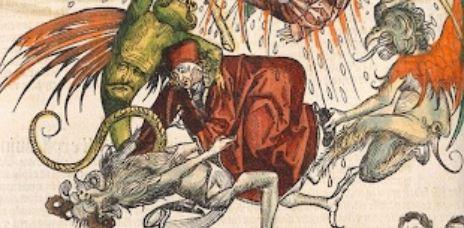Simonian Gnosis

Simonian Gnosis refers to the teachings of Simon Magus, a historical figure from the 1st century who played a significant role in ancient religious and Gnostic tradition. Simon Magus is particularly well-known in the writings of early Christians, who often portrayed him as a heretic or false prophet.
Simonian Gnosis is a syncretic religious movement that blended elements of Judaism, Christianity, and especially Hellenistic Gnosticism. Simon Magus is described in the writings as a magical or mystical teacher who claimed to have divine revelations and mystical insights (gnosis) that gave him special power.
Some key tenets of Simonian Gnosis include:
Dualism: Like many Gnostic traditions, Simon Magus advocated a form of dualism that distinguishes between the material world and a higher spiritual world. He viewed the material world as evil or inferior, while the spiritual world was divine and pure.
Simon as a Divine Incarnation: Simon Magus presented himself as a kind of divine incarnation, or as a human being who embodied the highest divine wisdom and power. In some Gnostic writings, he was considered the "first spirit" or the divine creator.
Knowledge and Salvation: In Simonian Gnosis, knowledge (gnosis) was at the center of faith. Salvation was achieved through the attainment of divine knowledge, which enabled believers to recognize the true, supernatural reality and escape from the material world.
Magic and Rituals: Simon Magus was known for his magical practices, which formed an important part of his teachings. He taught that access to divine wisdom and power could be gained through magical rituals and special secret sciences.
Simonian Gnosis was sharply criticized by early Christian Church Fathers such as Irenaeus and Hippolytus, who portrayed Simon Magus as a dangerous heretic whose teachings perverted true Christian doctrine.
Although Simonian Gnosis never became a widespread religious movement, it played an important role in early Christian and Gnostic debates about the nature of God, creation, and the essence of humanity.

